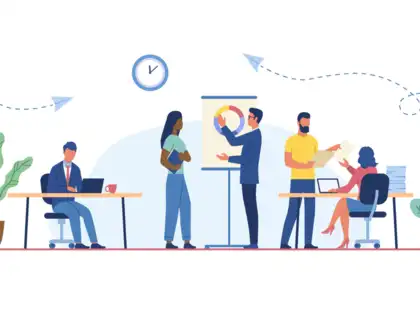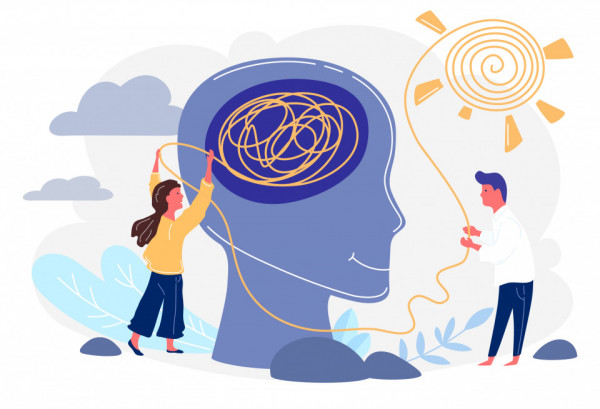Building Professional Relationships Across Generations
Connect meaningfully with colleagues of all ages to create a more collaborative, innovative, and harmonious workplace
The Multigenerational Workplace
Today's workplace features up to five generations working side by side, each with different communication styles, work preferences, and life experiences. Building strong professional relationships across these generations is not just beneficial—it's essential for organizational success in our diverse business landscape.
Understanding Generational Diversity in the Workplace
For the first time in history, today's workforce spans five generations, each shaped by different historical events, technological revolutions, and cultural shifts. While individual differences always outweigh generational stereotypes, understanding broad generational characteristics can provide a starting point for building stronger cross-generational relationships.
| Generation | Birth Years | Formative Experiences | Communication Preferences |
|---|---|---|---|
| Traditionalists (Silent Generation) |
1928-1945 | Great Depression, World War II, post-war boom | Formal, direct, prefer face-to-face or written communication |
| Baby Boomers | 1946-1964 | Civil rights, Vietnam War, space race, economic prosperity | Personal interaction, phone calls, some email |
| Generation X | 1965-1980 | Cold War end, latchkey kids, early computers, economic uncertainty | Direct, efficient communication, email, text |
| Millennials (Generation Y) |
1981-1996 | 9/11, internet revolution, social media, global connectivity | Digital first, texting, social media, collaboration tools |
| Generation Z | 1997-2012 | Digital natives, Great Recession, climate change awareness | Mobile-first, instant messaging, visual communication |
Important Note on Generational Frameworks
While generational categories provide a useful framework, they should be used as a starting point rather than rigid classifications. Individual personality, cultural background, education, and life experiences often have more significant influence on a person's communication style and work preferences than their generational identity.
Common Challenges in Cross-Generational Workplace Relationships
Understanding the potential friction points between generations can help you navigate relationships more effectively. Here are some common challenges that can arise:
Communication Style Differences
Preferences for formal vs. casual communication, communication channels, and response times can create misunderstandings across generations.
Work-Life Balance Expectations
Different views on working hours, remote work, and availability outside work hours can lead to tension between colleagues of different generations.
Feedback and Recognition
Expectations around frequency, delivery method, and type of feedback vary significantly across generations, affecting relationship quality.
Technology Adoption and Use
Different comfort levels with technology and preferences for digital tools can create barriers to effective collaboration.

"Diversity of thought isn't just about cultural background—it's also about generational perspective."
— Leadership Development Program, Al Mithaq Institute
Key Strategies for Building Cross-Generational Relationships
1. Practice Generational Intelligence
Generational intelligence is the ability to understand and adapt to different generational perspectives in the workplace. It begins with self-awareness about your own generational biases and extends to recognizing the value that different generations bring to the table.
Developing Generational Intelligence:
- Identify your own generational assumptions and biases
- Learn about historical events that shaped different generations
- Observe communication patterns of colleagues from different age groups
- Practice perspective-taking by considering issues from different generational viewpoints
- Ask for feedback on how your communication style is perceived by other generations
2. Establish Communication Bridges
Effective cross-generational relationships require adaptable communication approaches that acknowledge different preferences while creating common ground.
When Working with Older Generations:
- • Consider more formal communication initially
- • Acknowledge their experience and institutional knowledge
- • Provide context for technology and new processes
- • Be patient with technology adoption curves
- • Schedule face-to-face meetings when possible
When Working with Younger Generations:
- • Embrace digital communication channels
- • Provide regular feedback and recognition
- • Explain the "why" behind established processes
- • Value their technological fluency and fresh perspective
- • Be open to new collaboration tools and methods
3. Create Cross-Generational Learning Opportunities
Structured knowledge sharing between generations can build relationships while transferring critical skills and insights across the organization.
Mutual Mentoring Programs
Establish two-way mentoring relationships where older generations share institutional knowledge and industry expertise while younger generations provide insights on new technologies and emerging trends.
Cross-Generational Project Teams
Intentionally create diverse project teams that include members from different generations, assigning roles that leverage each person's strengths while creating opportunities for knowledge transfer.
Skill-Sharing Workshops
Organize informal learning sessions where employees can share their expertise—whether it's a senior employee explaining industry fundamentals or a younger team member teaching a new digital tool.
4. Focus on Shared Values and Common Ground
Despite generational differences, research shows that most employees share similar fundamental values and desires regarding their work. Focusing on these commonalities can help bridge generational divides.
Values That Transcend Generations:
Meaningful Work
All generations desire work that has purpose and contributes to something larger than themselves.
Respect & Recognition
Being valued for their contributions and treated with dignity is important across all age groups.
Work-Life Integration
Though definitions vary, all generations seek balance between professional and personal life.
Growth Opportunities
Continuous learning and professional development appeal to employees of all ages.
Fair Compensation
Being paid fairly for their work is a universal concern across generations.
Positive Relationships
Connections with colleagues contribute significantly to job satisfaction for all age groups.
5. Practice Inclusive Leadership and Collaboration
Whether you're leading a team or participating as a member, adopting inclusive practices helps create an environment where cross-generational relationships can flourish.
- Make space for all voices: Ensure meeting formats accommodate different participation styles, from those who prefer preparation time to those comfortable with spontaneous discussion.
- Acknowledge different types of expertise: Recognize that valuable contributions come in many forms, from deep technical knowledge to institutional history to fresh perspectives.
- Address microaggressions: Be vigilant about age-related comments or stereotypes ("OK, Boomer," "These millennials always...") that can undermine cross-generational relationships.
- Create flexible processes: Develop work systems that accommodate different generational preferences while meeting organizational needs.
- Promote cross-generational social interactions: Organize team-building activities that appeal to diverse age groups and create opportunities for informal connection.
Case Study: Cross-Generational Success at Global Financial Services Firm
A leading financial services organization was experiencing tension between their experienced advisors (mostly Baby Boomers) and their newly hired digital marketing team (primarily Millennials and Gen Z).
The company implemented a structured mutual mentoring program where senior advisors were paired with junior digital marketers. The senior professionals shared client relationship wisdom and industry knowledge, while the younger employees helped modernize the firm's digital presence and social media strategy.
The result: Client acquisition increased by 23% over 18 months, employee satisfaction scores improved across both groups, and voluntary turnover decreased. The program evolved into a cornerstone of the company's culture and a competitive advantage in both client service and talent retention.
Developing Cross-Generational Relationship Skills at Al Mithaq Institute
At Al Mithaq Institute, we offer specialized training programs designed to help professionals build stronger relationships across generational divides:
Generational Intelligence Workshop
A foundational program exploring the historical, social, and technological factors shaping each generation, with practical communication techniques for bridging differences.
Duration: 1-2 days
Cross-Generational Leadership Certificate
An advanced program for managers and leaders responsible for multigenerational teams, focusing on inclusive leadership practices and team development.
Duration: 5 modules over 2 months
Customized Organizational Training
Tailored programs designed for your specific organizational challenges and demographic makeup, including assessment, training, and implementation support.
Duration: Customized to organizational needs
Frequently Asked Questions
How do I address generational stereotypes in my workplace?
Start by acknowledging that while generational trends exist, individuals are shaped by many factors beyond their birth year. Encourage team members to share their personal experiences rather than generalizing about generations. When stereotypes arise, gently redirect conversations to focus on specific behaviors or needs rather than age-based assumptions.
What's the best way to give feedback to someone from a different generation?
While generational preferences vary, most professionals appreciate feedback that is specific, behavior-focused, and delivered with respect. Ask colleagues how they prefer to receive feedback (in writing, in person, etc.) and about their desired frequency. This personalized approach acknowledges individual preferences while building cross-generational rapport.
How can we design meetings that work for all generations?
Create a balanced approach by distributing agendas in advance (preferred by older generations) while incorporating interactive digital elements (appealing to younger colleagues). Alternate between structured discussion and more collaborative formats. Most importantly, establish clear meeting purposes and outcomes, which all generations value regardless of format preferences.
What if generational conflicts persist despite our best efforts?
When conflicts continue, move the conversation from generational differences to underlying work needs and values. Facilitate direct dialogue that focuses on specific behaviors and impacts rather than generational labels. In persistent cases, consider bringing in a neutral third party, such as a coach or mediator with expertise in generational dynamics.
Strengthen Your Cross-Generational Relationship Skills
Join Al Mithaq Institute's specialized training programs to develop the skills needed to build meaningful professional relationships across generations.







